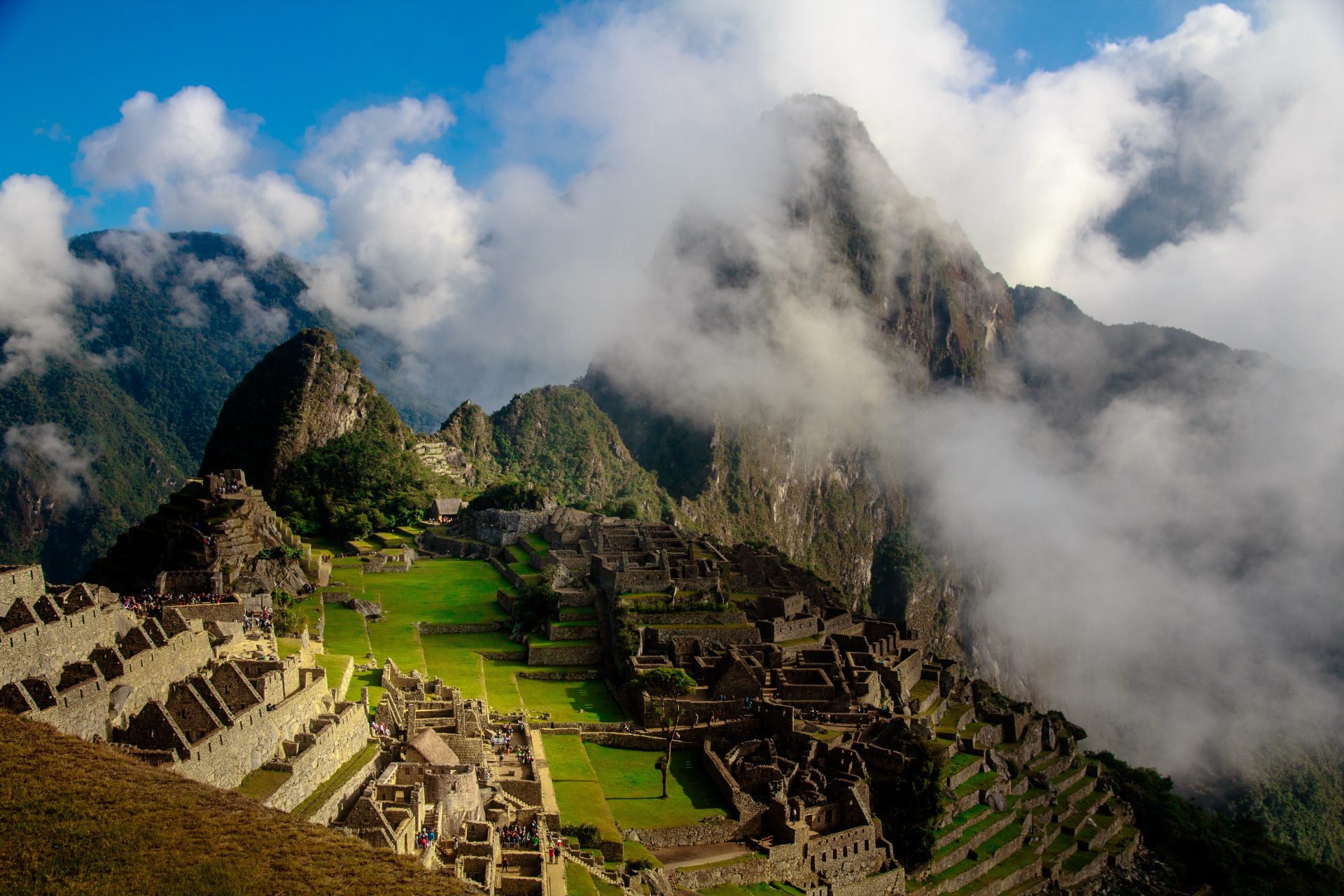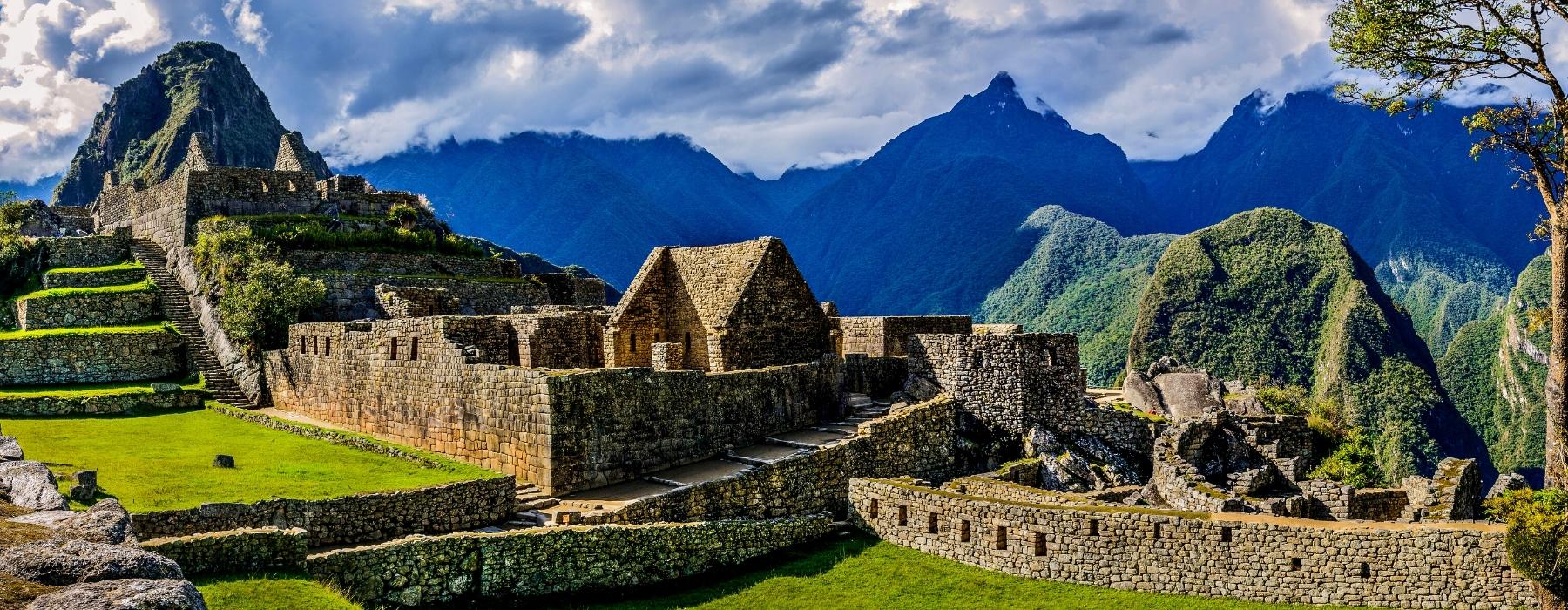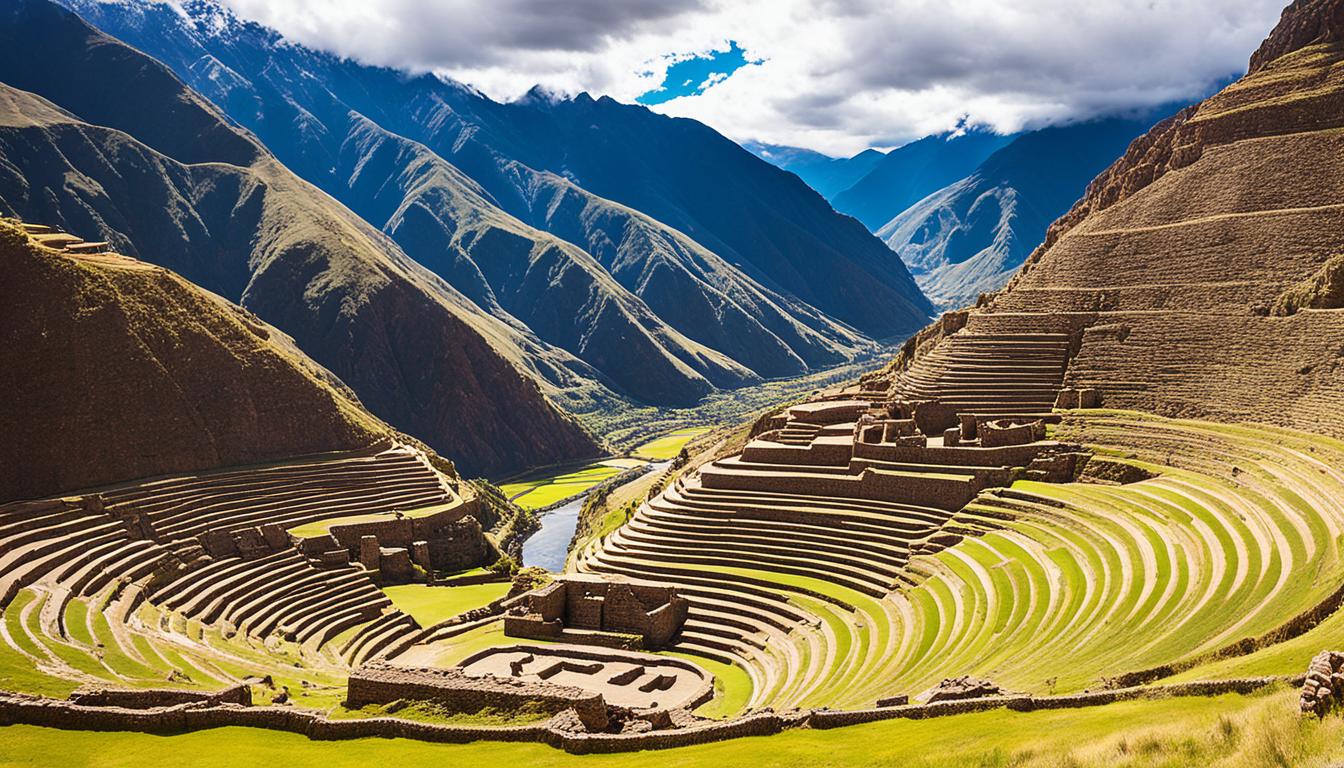Exploring Peru’s Inca Heritage: A Journey Through Ancient Ruins
Nov 8, 2024 | By Piz za
Peru, a country renowned for its rich tapestry of history and culture, offers a profound journey into the heart of the ancient Inca civilization. This exploration unveils the architectural marvels and cultural heritage left behind by the Incas, whose empire once stretched across the Andean mountains. Central to this exploration are the iconic ruins of Machu Picchu, the lesser-known but equally significant sites of Choquequirao and Kuélap, and the vibrant cultural landscapes of the Sacred Valley. This report delves into these ancient wonders, providing an insightful and comprehensive guide to Peru’s Inca heritage.
Machu Picchu: The Crown Jewel of the Inca Empire
Machu Picchu, a UNESCO World Heritage site, stands as the most iconic symbol of the Inca civilization. Nestled high in the Andes Mountains, this archaeological marvel was built in the 15th century and later abandoned during the Spanish conquest. Rediscovered in 1911 by Hiram Bingham, Machu Picchu has since become a focal point for understanding Inca engineering and cultural practices (Peru Explorer).

The site is accessible via the renowned Inca Trail, a 39-kilometer trek that culminates at the Sun Gate, offering breathtaking views of the ruins. This trail, originally constructed by the Incas, provides a historical journey through diverse landscapes and ancient ruins, making it a must-experience for both seasoned hikers and first-time adventurers (Machu Picchu).
The Inca Trail: A Historical Trek
The Inca Trail is one of the world’s most famous treks, known for its stunning mountain vistas and ancient ruins. This multi-day journey not only offers a physical challenge but also a deep dive into the history of the Inca civilization. The trail passes through various ecosystems, from cloud forests to alpine tundra, and includes significant archaeological sites like Llactapata and Wiñay Wayna, before culminating in the majestic Machu Picchu (Tourist Secrets).

For those seeking an alternative route, the Salkantay Trail offers a more challenging but equally rewarding experience. This trail provides breathtaking views of snow-capped mountains and diverse ecosystems, making it a popular choice for adventurous travelers (Nomadic Moments).
Choquequirao and Kuélap: Hidden Gems
Beyond Machu Picchu, Peru is home to other significant Inca sites such as Choquequirao and Kuélap. Choquequirao, often referred to as Machu Picchu’s sister city, is a sprawling complex that remains largely unexplored by tourists due to its remote location. This site offers a more intimate and less crowded experience, allowing visitors to connect deeply with the Inca heritage (Virtual Peru).

Kuélap, on the other hand, is a massive fortress built by the Chachapoyas culture, predating the Incas. Located in the northern Andes, Kuélap is an architectural marvel with its towering stone walls and intricate structures. This site provides insight into pre-Inca civilizations and their influence on the region’s history (Alpaca Expeditions).
The Sacred Valley: A Cultural Heartland
The Sacred Valley of the Incas is another vital component of Peru’s Inca heritage. This fertile region, nestled between Cusco and Machu Picchu, is dotted with ancient ruins and vibrant markets. Here, visitors can explore the engineering marvels of Ollantaytambo and Pisac, which showcase the Inca’s advanced agricultural and architectural techniques (Peru Explorer).

Beyond the ruins, the Sacred Valley is a living cultural landscape where the Quechua people, descendants of the Incas, continue to practice traditional farming and weaving techniques. Engaging with the local communities offers a unique opportunity to understand the enduring legacy of the Inca civilization.
Cusco: The Historical Capital
Cusco, the historical capital of the Inca Empire, serves as a gateway to exploring Peru’s ancient ruins. The city itself is a UNESCO World Heritage site, with its cobbled streets and colonial architecture reflecting a blend of Inca and Spanish influences. Key sites include the Qorikancha temple and the fortress of Sacsayhuamán, which offer a glimpse into the grandeur of the Inca Empire (Tourist Secrets).
![Sacsayhuamán, Peru: Visiting Cusco's Inca fortress [free travel guide]](https://www.annees-de-pelerinage.com/wp-content/uploads/2019/06/Sacsayhuam%C3%A1n-inca-fortress-cusco.jpg)
Exploring Cusco independently allows for a more immersive experience, as visitors can tailor their itinerary and spend time connecting with the rich history and cultural heritage of the area.
Notable Sites to Visit in Peru’s Inca Heritage Journey
Exploring Peru is like stepping into a realm where history, culture, and nature converge in spectacular harmony. With an array of ancient ruins, vibrant local communities, and breathtaking landscapes, this country invites travelers to delve into its Inca heritage. Here’s a closer look at some of the most remarkable locations to include on any Inca-themed adventure in Peru.
- Machu Picchu
This iconic 15th-century Inca citadel, perched high in the Andes, remains Peru’s most celebrated archaeological marvel. Accessible via the famous Inca Trail, Machu Picchu offers unparalleled insights into the ingenuity and cultural depth of the Inca Empire. - The Inca Trail
Renowned globally, the Inca Trail not only offers a physically challenging trek but also a journey through diverse ecosystems and significant ruins like Llactapata and Wiñay Wayna, making it a must for history enthusiasts and nature lovers alike. - Choquequirao
Often called Machu Picchu’s “sister city,” Choquequirao offers an intimate, less-traveled experience. Hidden in the mountains and largely undisturbed by tourism, it provides a quiet atmosphere for those looking to connect deeply with the Inca past. - Kuélap
A massive fortress built by the Chachapoyas culture in northern Peru, Kuélap predates the Incas and stands as a testament to the region’s pre-Inca civilizations. Its towering walls and complex structures make it a fascinating addition to any itinerary. - The Sacred Valley
Between Cusco and Machu Picchu lies the Sacred Valley, a lush area filled with Inca ruins and vibrant Quechua communities. The valley’s ancient sites, like Ollantaytambo and Pisac, showcase advanced Inca agricultural and architectural innovations. - Cusco
As the historical capital of the Inca Empire, Cusco’s colonial architecture and stone streets provide a fascinating blend of Inca and Spanish influences. Key attractions like Qorikancha and Sacsayhuamán make it a must-visit destination to appreciate Peru’s layered history.
Conclusion
Peru’s Inca heritage offers a profound journey through time, showcasing the architectural prowess and cultural richness of one of history’s most advanced civilizations. From the iconic ruins of Machu Picchu to the hidden gems of Choquequirao and Kuélap, and the vibrant cultural heartland of the Sacred Valley, Peru invites travelers to explore its ancient wonders. This journey not only unveils the mysteries of the past but also connects us to the enduring legacy of the Inca civilization.
Related Blogs

India vs New Zealand: A Traveler’s Perspective on Two Unique Destinations
India vs New Zealand are two destinations that offer contrasting yet equally mesmerizing experiences. India vs New Zealand comparisons often highlight India’s centuries-old traditions, bustling bazaars, and architectural marvels versus New Zealand’s breathtaking natural landscapes and adrenaline-pumping adventures. Whether you’re a culture enthusiast, nature lover, or thrill-seeker, this guide will help you explore the best […]

Barbastro Barcelona: A Journey Through Spain’s Hidden Gems
Spain is a treasure trove of culture, history, and breathtaking landscapes. Two destinations that encapsulate the country’s charm are Barbastro Barcelona. While Barcelona is renowned for its vibrant city life and iconic architecture, Barbastro offers a quieter, more traditional Spanish experience nestled in the heart of the Somontano wine region. Together, they create the perfect […]

The Complete Guide to the Carry On Cast: Past, Present, and Future
The Carry On films stand as a cornerstone of British cinema, delivering decades of laughter and unforgettable characters. This iconic comedy franchise, spanning over 30 years, combined slapstick humor, clever wordplay, and a talented ensemble cast that became household names. This guide explores the history of the Carry On cast, their contributions to the franchise, […]

Exploring Austria’s Iconic Opera Houses
Austria, a nation steeped in a rich cultural heritage, stands as a beacon of classical music and artistic excellence. Among its most revered cultural institutions are its opera houses, which serve as both architectural marvels and stages for world-class performances. This report delves into the history, architecture, notable performances, and cultural significance of Austria’s iconic […]

Exploring the Distinctive Andean Music of Bolivia
The Andean music of Bolivia is a vibrant and integral part of the country’s cultural tapestry, deeply rooted in the traditions and spiritual practices of the Andean peoples. This genre of music is not only a form of artistic expression but also a medium through which the stories, legends, and historical narratives of the Aymara […]

Learning About the Carnival Culture in Rio de Janeiro, Brazil
The Rio de Janeiro Carnival, often heralded as the world’s largest and most famous carnival celebration, is a vibrant showcase of Brazilian culture, history, and community spirit. This annual event, which draws millions of participants and spectators from around the globe, is a testament to Brazil’s rich cultural heritage and its capacity for joyous celebration. […]

Mastering Mozzarella: A Taste of Italy
Mozzarella, a semi-soft cheese originating from Italy, is cherished for its creamy texture and mild flavor. Traditionally crafted from buffalo milk, it also finds a popular variant made from cow’s milk. This cheese is not just a culinary staple but a cultural icon, deeply embedded in Italian society and cuisine. Its high moisture content contributes […]

Discovering the Art of Calligraphy in South Korea
Korean calligraphy, known as “Seoye” (서예), stands as a testament to the rich cultural heritage and artistic expression of Korea. This ancient art form, which involves the artistic writing of both Hanja (Chinese logographs) and Hangul (the Korean native alphabet), transcends mere communication to become a profound medium of aesthetic and spiritual expression. As we […]

Scotland’s Tartan: A History of Highland Dress
Tartan, with its vibrant patterns and historical richness, is one of Scotland’s most iconic symbols. It is inextricably linked to the kilt and the national dress of Scotland, embodying both cultural heritage and identity. This detailed report delves into the origins, evolution, and cultural significance of tartan and Highland dress, exploring how this textile has […]

Tribal Arts of Papua New Guinea: A Unique Heritage
Papua New Guinea (PNG) is a nation marked by its remarkable cultural diversity, with over 800 distinct tribes, each possessing its own language and customs. This diversity is vividly expressed through the tribal arts, which are not only a testament to the rich heritage of the indigenous people but also serve as a living tapestry […]

